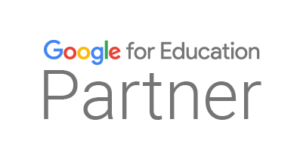Data-backed decision-making is no longer limited to the corporate sector. Education industries are swiftly catching up on the benefits of using data analytics in education for better results. Many educators and school owners can attest it creates an improved environment for learning.
Using solid facts and data to create tailor-made learning models can take educational institutions to new heights. As pioneers of consistent learning and improvement, schools need to integrate the use of data analysis to improve learning methodologies. Schools need to actively use data analytics to work towards educating students with the best practices.
But how can data analysis improve the quality of education? Read ahead to find out.
Student performance analysis
With a mountain of assessments and assignments, it’s difficult for teachers to analyze scores manually and provide effective feedback to each student. Using data analytics can simplify this process and allow teachers to automate test grades and provide relevant feedback to students.
With this automated score analysis, teachers can easily understand the individual strengths and weaknesses of the students and provide them with better assistance in classroom learning and exam preparations.
Personalized Learning Using Data Analytics in Education
The use of data analysis can help schools create personalized learning models for students. It ensures that all students receive the best educational training and classroom assistance according to their needs and limitations. The personalized learning model helps students learn effectively at their own pace and retain more knowledge.
Early warning systems with predictive analysis
Using existing data such as attendance, scores, etc. – teachers can easily look out for students and their needs. Predictive analysis can help teachers support students who are at risk of failing in their academics or performing poorly, or students who might need emotional support.
Early warning systems can help schools design an environment where no child is left to suffer alone.
Curriculum and instructional improvements
Without understanding the needs and limitations of students, academic decision-making will be ineffective. To create the best instructional methodologies and curated curriculums for students, analyzing student data and current trends is a must. Without proper analysis, schools may fall behind in providing the best learning experiences for their students.
Data analytics can help schools increase student engagement and create teaching solutions that cater to their students effectively to produce the best results.
Resource Allocation Using Data Analytics in Education
In school administration, resources can be effectively allocated with the help of data analytics. To utilize the resources at hand in the most optimal way, analyzing data can help schools understand which areas and departments require more resources and which run effectively on their own.
In this manner, there is less wastage of resources, and all employed resources are used efficiently.
School Improvement and Policy Making
Ultimately, school policies are made for students and educators to learn collaboratively. Creating policies and improvement decisions that don’t align with the opinions and needs of the students and educators can negatively impact the school. It might reduce readmission rates or even cause aggregate performance scores to drop.
To avoid this, schools can leverage student and employee data to create policies and improvements that add value to the stakeholders’ lives.
Conclusion
Integrating data analytics in education is an important step towards creating better learning experiences for students. Data-backed decision-making doesn’t just improve test scores, but the overall learning environment of schools. Using tools like predictive analysis and performance tracking, schools can be equipped with ample resources to create personalized learning methodologies and plans for their students.
Try out our Netoyed Datalake services for efficient and simplified data analysis for education. Visit edu.netoyed.com to learn more.




 1st Floor, H-31, Sector 63,
1st Floor, H-31, Sector 63,
thank you for this nice article and these useful informations